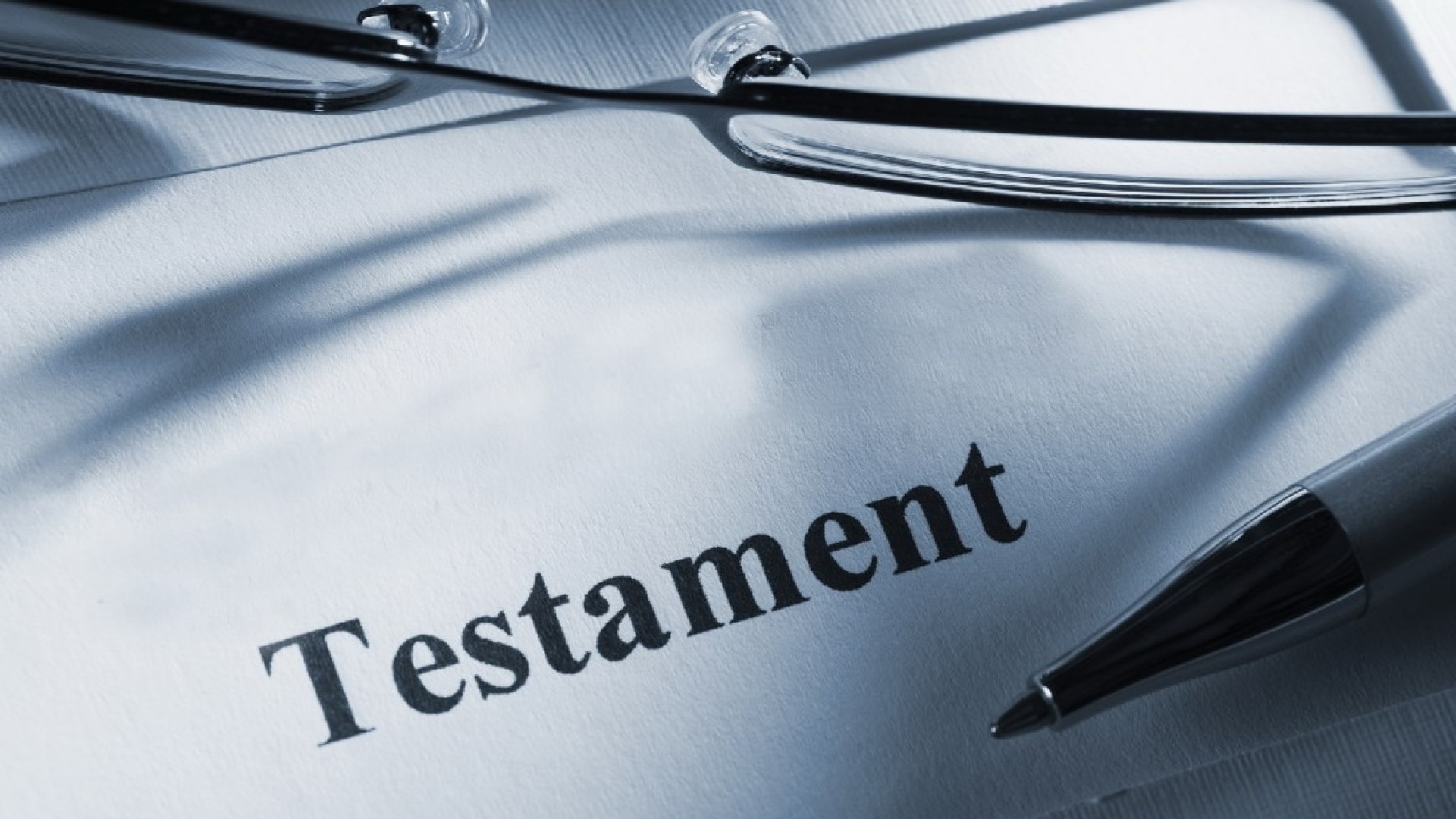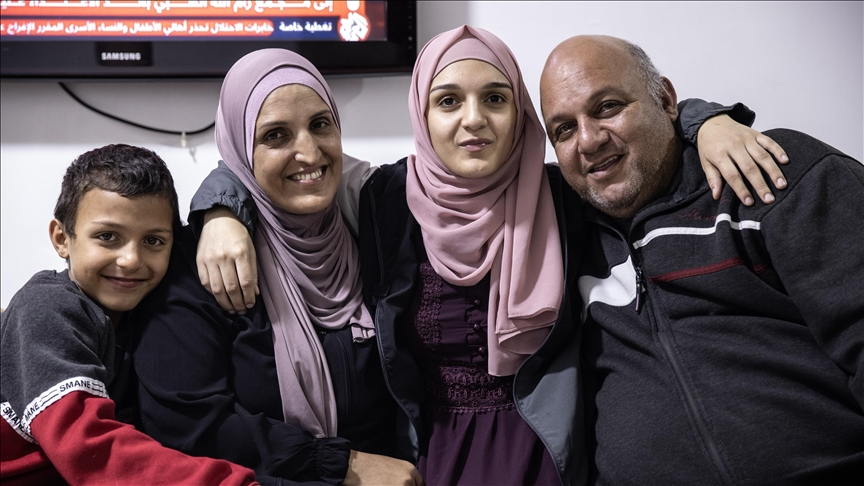Testament (the-vesijetu), its rules and provisions in Islam (3)

In the previous post we talked about ruknets, -pillars of the will and its terms. In this paper we will talk about the will in benefits and how to make a will.
Will for benefits
All Islamic scholars (four legal-religious schools- medhhebet) agree that the subject of the will may also be various benefits. With the benefits, which can be realized through the will, to the Hanafis we mean various services, and: residential, lease utilization, land use or its yields, plantations, plantation fruits and the like.
Evaluation and calculation of benefits
Earlier we clarified that the will allowed, that can be realized, is one who captures the value of one-third of the testator's estate. If the will is left in real estate, such as houses, the object, land and the like, then this wealth is valued and calculated in itself, and the will is valid in one-third of the estate. What if the will is left in benefits, then, according to the Hanafi and Maliki madhhabs, real estate is valued and calculated, from the benefits of which the will has been left, no matter how long the benefits are. AND, if the real estate captures the value of one third of the property, then the will left by the benefits of this property, is valid and realized, and if the real estate is more than one third of the property, then the will is realized in the benefits of only one third of it, of benefits from what is more than a third, are realized only if such a thing is allowed by the heirs. For, the calculation and evaluation is done in the real estate from which it benefits, rather than in the value of the benefits. P.sh., if the testator has bequeathed the use or benefits of one hectare of land, while only half of this hectare captures the value of one-third of its wealth, then the testator is allowed to use only the benefits of half a hectare and no more.(1)
How to use the benefits
There are two ways to reap the benefits: Is for: For the testator to use the real estate himself, whose benefits have been bequeathed to him,and the second; For the testator to rent that property, and take the benefits of her rent for himself. How to use the benefits left in the will varies depending on how it is defined in the will. If the testator has not specified in his will any special way of using the benefits, then, with the consent of all scholars, the testator has the right to use the benefits in any way he wishes, use them yourself while living at home, or working the land etc., or lease it to someone else and take advantage of their rent. What if the testator has determined to the testator how to use the benefits, then the testator must adhere to the prescribed manner. If p.sh., if the testator has left a will, the testator has the right to live in that house himself and not to rent it out to someone else. WHEREAS, the opposite, if he has bequeathed the use of the lease, then of course he has the right to reside in it himself.(2)
Utilization time for benefits
If time has been set in the testament left of benefits, p.sh. from the beginning of this year to the end of the year, then the testator is allowed to use the benefits only within that time. If the allotted time passes before the testator dies, then the will becomes invalid and is not realized. What if a part of the allotted time has passed before the testator dies, then he is allowed to use the benefits in the remaining time. WHEREAS, if the will for benefits has set an indefinite time, such as a year, without mentioning which year, then that period begins from the time of the division of property. It is worth noting that the owner of the real estate, whose benefits are bequeathed, no action with real estate is allowed, and: change, sale of similar, throughout the time of the will. And any action in this case is linked to the permission of the testator. It is also worth noting that within the will for benefits can be counted the granting of some rights-opportunities. P.sh. right-of-way access to water, for its transmission through channels, right- the possibility of overcoming similar.
Completion of the will for benefits
The benefit testament expires — it is declared invalid in these cases:
a) If the specified benefit period expires before the testator dies.
b) If the testator dies before the time of utilization of benefits begins, because the benefits left by will are not inherited.
c) If the testator waives the right to use the benefits, and leaves this right to the heirs, whether with compensation or without it.
Cases when the testator is unable to use the benefits
1. If the testator is unable to use the benefits due to the obstruction of one or more heirs. In this case, the testator's obligors are obliged to compensate the testator for the value of the benefits for as long as it is determined by the will.. The same is done in the case when the testator is unable to use the benefits due to the impediment of all heirs. For, all heirs are obliged to compensate him for the value of the benefits. In both cases the testator is not allowed to request another time to avail himself of the benefits, after the allotted time.
2. If the testator is unable to use the benefits for reasons other than obstruction by the heirs. In this case the heirs have no obligation to him.(3)
The manner of realization of the will
If the testator's inheritance is all present and no part of it is missing, nor has it been lent to anyone else, then the will is realized from the whole property, regardless of whether the will is monetary value or real estate. For, the entire inheritance is calculated and the testator realizes his right by will in the amount of one third of the entire property. WHEREAS, if a part of the testator's inheritance is present and the rest is missing, or is indebted, then the manner of execution of the will varies depending on the situation and situation, as follows.
Action in cases where a part of the inheritance-property is not present-is missing, or is indebted:
1. If the will is specified in monetary value, si p.sh. the word comes a thousand euros, then evaluated and calculated, and if this multi-will captures the value of one-third of the property that is present, then the will is realized from the property that is present. Acting in this way is considered not to harm the heirs, for they are left with two-thirds of the wealth that is present. And if the monetary value left by the will is more than one third of the property that is present, then the testator receives only one third of the property that is present and the rest belongs to the heirs. And from each part of the missing property, which returns, the testator owes one third of it. This is done until the testator fulfills his right-will.
2. If the will is designated for certain real estate, and. p.sh. will for separate house, special land or plantation, then, according to the Hanafis, the testator realizes the will from the designated real estate in the value of one third of the property that is present, and the rest of the designated real estate remains pending. AND, from each part of the property returned, the testator receives from the designated remaining real estate the value of one third of the property returned. This is done until the testator completes all the real estate specified in the will. What if the property is not present, lost-destroyed, then the remaining part of the designated real estate enters the ownership of the heirs.(4)
3. If the will is set for a certain type of property, si p.sh. will for one third of commercial goods, or a will for one third of the debts lent to traders, etc., in this case, if the property for which a will has been left, is present, the testator receives his share of one-third of it, if the value of the will is as much as one-third of it — the type of property that is present. What if the value of the will is more than one third of the property that is present, then the testator receives one-third of the type of property that is present, and the rest belongs to the heirs. And from each part of the property that is returned, the testator receives from the certain type of property bequeathed, worth one-third of it – of the property being returned. This is done until the testator fulfills his right-will over that type of property.
4. If the will is not assigned to a certain type of property. In this case, with the consent of all scholars (juridical-religious schools-madhhabs), the testator is a joint member with the heirs of the entire estate, what is present and what is missing or owed. The testator receives one third of the property that is present (if the will is worth one-third of the property), and one-third of each portion of the property returned. This is done until the testator completes his share of the will. (follows)
1) According to the Shafi'i and Hanbali madhhab, the calculation and evaluation of the will for benefits is done in the value of the benefits left in the will and not the real estate from which it benefits.. The Hanbalis have another explanation for this matter. (Shih: El-Fikh el-Islami ve ediletuhu, prof.dr.Vehbet Ez zuhejli, v.10, f.7522-7525, bot.4.2002, Darul Fikr, Dimeshk.
2) Redul mukhtar ala ed-durril mukhtar, Muhammed Emin-Ibn Abidin , v.10, f.397 399, bot.2.2003, Darul pole el-ilmijetu, Beirut. According to the Shafi'is and Hanbalis, the testator has the right to use the benefits left in the will in any way he wishes., use them yourself or rent them out, regardless of the will of the testator. (Shih: El-Fikh el-Islami ve ediletuhu, prof. dr.Vehbet Ez-zuhejli, f.7526-7527).
3) According to the Shafi'is, if the testator is unable to use the benefits due to the impediment of all heirs, the testator has the right to choose another time for the use of the real estate, whose benefits have been bequeathed to him, or seek compensation for the value of the benefits. What if the testator is unable to use the benefits due to the testator, si.p.sh. if the testator has rented the facility for a certain period of time, whose benefits are bequeathed, and died before the end of the lease term. Or he is unable to use the benefits for personal reasons, si.p.sh. is abroad or is incarcerated. In this case the testator has the right to use the real estate, whose benefits have been bequeathed to him, at another time. (Yes there, f.7529-7535.).
4) According to malikinjve, in this case it is done as in the first case. The testator receives the share of the designated real estate in the value of one third of the property that is present, and the remainder of the real estate enters the ownership of the heirs. They think that the pending part of the given real estate delays the division of the inheritance, and delay can harm the heirs. WHEREAS, upon entry of the remainder of the designated real estate into the ownership of the heirs, the testator is not harmed either. Because he will be compensated for the value of the remaining real estate by taking one third of each part of the property that is returned, until he completes his will. (Shih: El-Fikh el-Islami ve ediletuhu, prof.dr.Vehbet Ez-zuhejli, f.7550-7551).
Mr. Fitim Gashi











